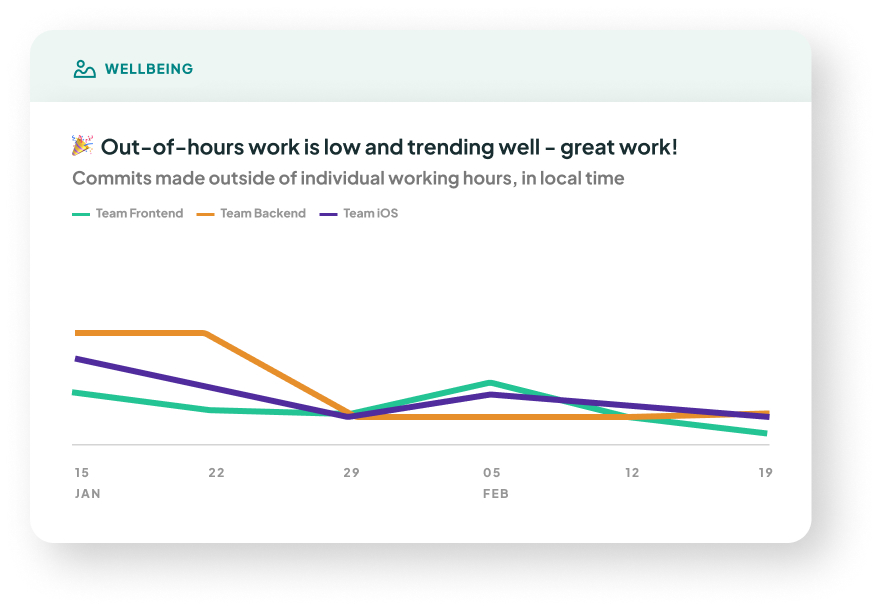Out-of-Hours Work

What it is: This measure shows how often people are working outside of their own preferred working hours. Given that more and more people are working flexible hours, our metric is configurable for different timezones and different preferred working hours and days.
Why it matters: Working long hours is a risk factor for burnout. Moreover, the longer someone works, the harder it is for them to solve challenging problems: a study from the Wharton School of Business and University of North Carolina demonstrated that our cognitive resources deplete over time, so we need breaks to refuel. At Multitudes, we’ve seen that the faster a team’s Change Lead Time, the higher their Out-of-Hours Work is likely to be – so it’s important for teams and leaders to keep an eye on both metrics together, so they don’t over-optimize for speed and then burn out their team.
How we calculate it: We look at the number of commits that people did outside of their usual working hours. By default, this is set to 8am-6pm, Monday to Friday, in each team member’s local time. This can be individually configured in Settings to account for different working hours and days.
What good looks like
On average over time, this should be 0, with people doing as little work out of hours as possible. If this does rise above 0, it’s important to ensure that it doesn’t become a trend so that people aren't doing sustained days of long hours. Multiple weeks with someone doing more than 5 commits made out-of-hours per week might warrant some rebalancing of work or stricter prioritization!
Last updated
Was this helpful?

